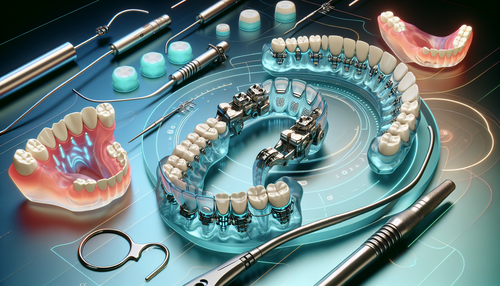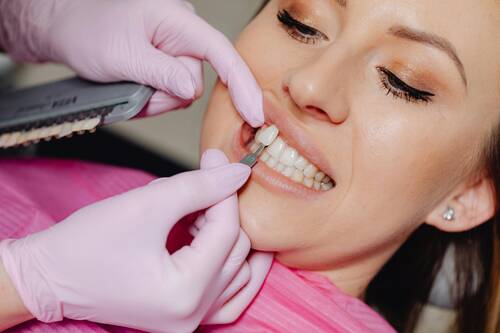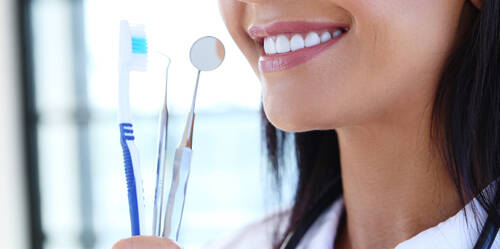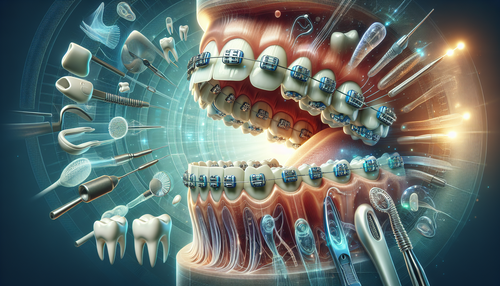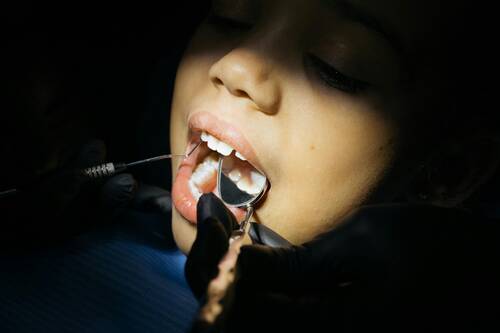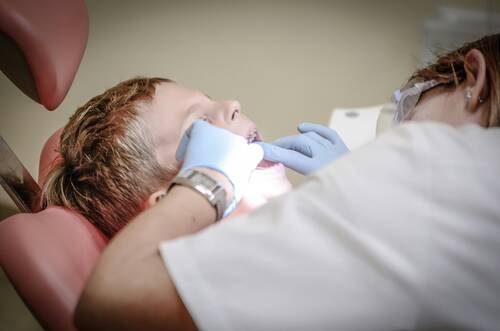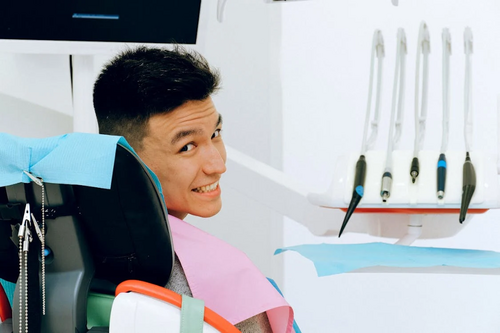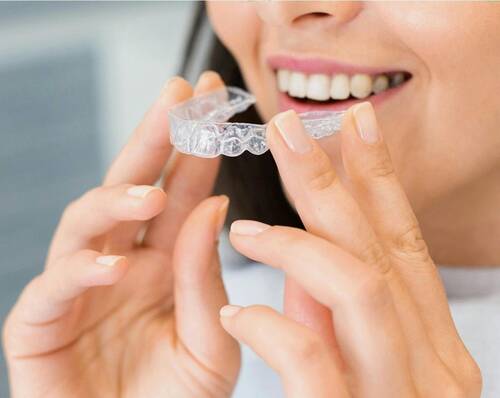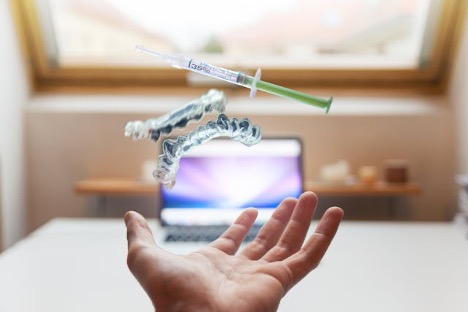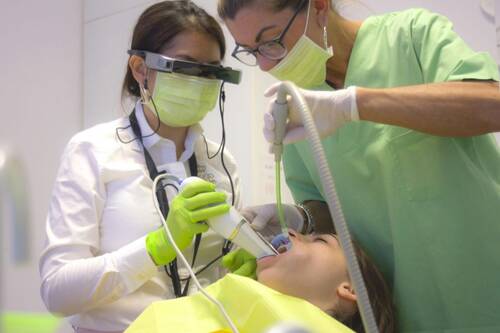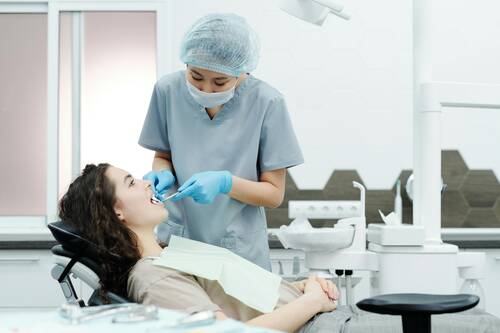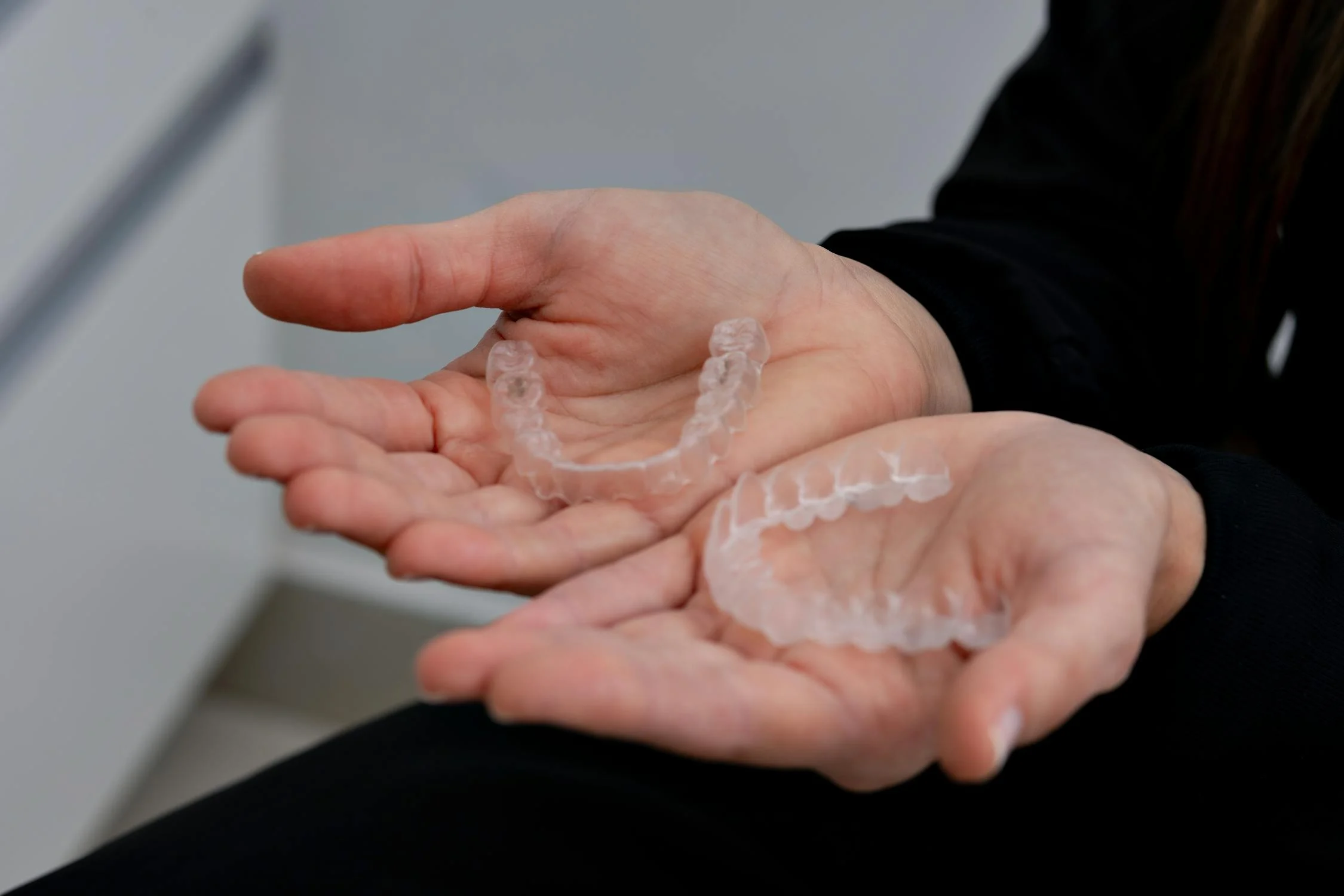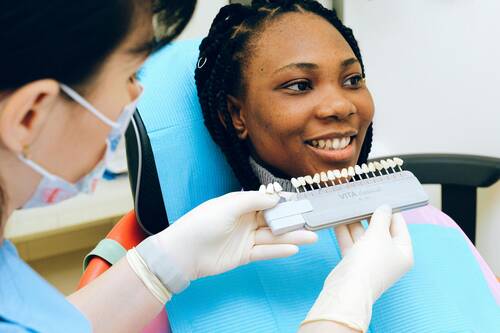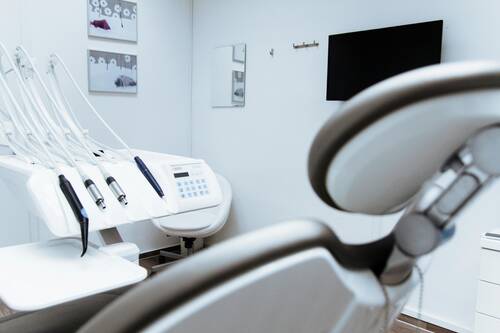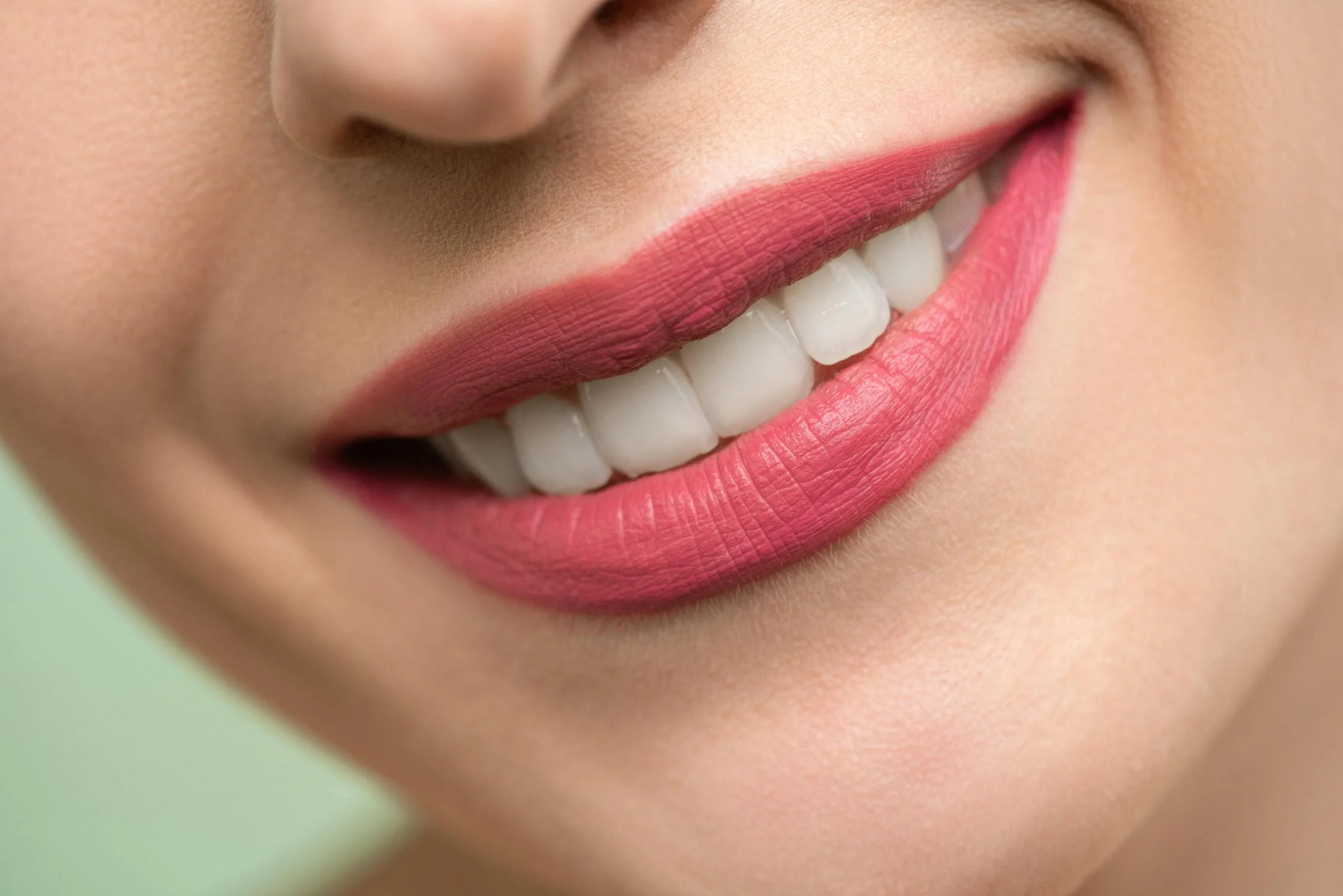Why Dental Implants Are a Worthwhile Investment for Las Vegas Residents

Benefits of Dental Implants
Understanding the benefits of dental implants is vital for individuals considering this advanced dental solution. Dental implants offer a durable, aesthetic, and functional replacement for missing teeth, enhancing overall oral health and quality of life. Unlike traditional dentures or bridges, implants are anchored directly into the jawbone, providing a stable foundation that mimics natural tooth roots. This integration not only improves chewing efficiency and speech clarity but also prevents bone loss, a common risk factor associated with missing teeth. Patient-focused care emphasizes the importance of understanding potential risk factors before undergoing implant surgery. These may include pre-existing health conditions such as diabetes or osteoporosis, which could affect healing and implant success. Detailed consultation with a dental professional is important to assess these risks and tailor a treatment plan accordingly. Moreover, the longevity of dental implants is greatly influenced by maintenance tips provided by dental experts. Patients should adhere to a rigorous oral hygiene regimen, including regular brushing, flossing, and routine dental check-ups, to prevent peri-implant diseases. By following these maintenance tips, patients can optimize their implant longevity, ensuring a lifetime of improved oral function and aesthetics. This thorough approach underscores the transformational benefits dental implants provide. (more…)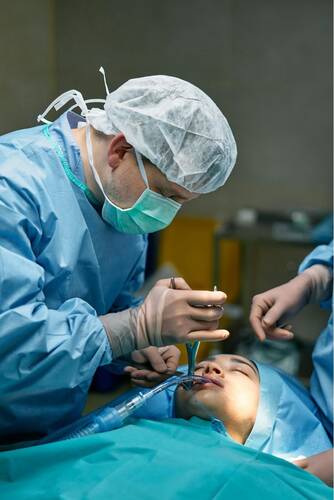 Visiting an oral surgeon for the first time can be a source of apprehension, but knowing what to anticipate can mitigate these concerns. From the initial consultation, which includes a meticulous review of medical history and oral health, to the detailed examination of your oral cavity using state-of-the-art imaging, the surgeon’s primary aim is to devise a personalized treatment plan that suits your specific needs. Additionally, discussions about potential procedures and sedation options play an essential role in your journey towards improved oral health. Are you ready to explore what each of these steps entails?
Visiting an oral surgeon for the first time can be a source of apprehension, but knowing what to anticipate can mitigate these concerns. From the initial consultation, which includes a meticulous review of medical history and oral health, to the detailed examination of your oral cavity using state-of-the-art imaging, the surgeon’s primary aim is to devise a personalized treatment plan that suits your specific needs. Additionally, discussions about potential procedures and sedation options play an essential role in your journey towards improved oral health. Are you ready to explore what each of these steps entails?
Initial Consultation Details
During your initial consultation with an oral surgeon in Long Beach, CA, a thorough review of your medical history and a detailed examination of your oral health condition will be conducted. This initial consultation is an essential stage of the oral surgical process, as it provides the surgeon with significant information to make an informed diagnosis and treatment plan. The oral health examination will involve an extensive evaluation of your teeth, gums, and jaw structure. This might include radiographs or other imaging studies to gain a better understanding of your oral anatomy. The surgeon will carefully examine these images, looking for signs of any oral health issues that might require treatment. A key part of the initial consultation is understanding patient expectations. The surgeon will engage in open dialogue with you, discussing your concerns, fears, and goals for the treatment. This communication allows for a mutual understanding between the patient and the surgeon, resulting in a more personalized treatment plan. (more…)What Are Veneers?
Veneers are thin, custom-made shells designed to cover the front surface of your teeth. They are typically made from porcelain or composite resin and are bonded to your natural teeth to improve their appearance. Veneers are highly effective for correcting a range of cosmetic dental issues, including stains, chips, gaps, and misalignment. These shells are designed to match the natural colour, shape, and size of your teeth, giving you a seamless, natural-looking smile. Veneers are durable and can last for many years with proper care. They are often considered a minimally invasive option for achieving a perfect smile without the need for extensive dental work.Why Choose Veneers in London?
London is home to some of the world’s leading cosmetic dentists, many of whom specialise in veneer treatments. There are several reasons why choosing veneers in London can be a great decision: (more…)The Effects of Braces on Oral Health: Insights from Dental Professionals
Things You Should Go to Your Dentist About Right Away
Many people are not even aware of what counts as a dental emergency and so they don’t even know when to be concerned. It can be simple to take a wait and see approach to dental issues since they might not cause you lots of pain at first. However, suffering from serious discomfort isn’t always the first sign of a dental health concern. (more…)1. Bleeding Gums Aren’t Normal
Ever notice a bit of pink in the sink when you brush or floss? It’s tempting to brush off (literally and figuratively) bleeding gums as a minor issue, but it’s actually one of the clearest indicators that something needs attention. Healthy gums don’t bleed from regular brushing or flossing. Bleeding gums are often a sign of gingivitis, an early stage of gum disease. If untreated, gingivitis can progress into periodontitis, which can cause gum recession and tooth loss. So, if you’re seeing blood, consider it a nudge to get that dental checkup booked. (more…)Why Pediatric Dentists Are Important for Kids?
Pediatric dentists aren’t just regular dentists—they’re specialists trained specifically to care for children’s dental health from infancy through the teenage years. This specialized training means that they understand more about baby teeth, growing jaws, and the best ways to help kids feel comfortable during a dental visit. Pediatric dentists often complete additional training after dental school to become experts in managing children’s unique dental needs, behaviors, and even anxieties. Their offices are designed to make kids feel safe, comfortable, and at ease. From playful decorations and kid-sized chairs to dentists who know how to talk to children about their oral health, pediatric dental clinics are usually kid-friendly spaces. These environments can make a big difference, especially for kids who feel nervous or scared about visiting the dentist. But the care that pediatric dentists provide goes beyond just helping kids feel relaxed. Pediatric dentists are skilled at managing dental issues unique to children, such as dealing with baby teeth, guiding the eruption of adult teeth, and addressing early signs of cavities, gum disease, and other issues. They also understand the importance of early intervention in preventing long-term dental problems. (more…)Preventing Tooth Decay and Gum Disease
One of the primary benefits of regular dental cleanings is the prevention of tooth decay and gum disease. During a cleaning, a dental hygienist removes plaque and tartar buildup that regular brushing and flossing may miss. Plaque is a sticky film of bacteria that can lead to cavities and gum inflammation if not addressed. Tartar, the hardened form of plaque, can only be removed by a dental professional. Keeping your teeth clean significantly reduces your risk of developing these common dental issues. Gum disease, which can range from mild gingivitis to more severe periodontitis, is particularly concerning. If left untreated, it can lead to tooth loss and has even been linked to systemic health issues, including heart disease and diabetes. Regular cleanings not only help keep your gums healthy but also provide an opportunity for your dentist to assess your risk factors and recommend appropriate preventive measures. (more…)Why You Need to Go to the Dentist to Prevent Problems
Your oral health is key for your overall well-being. These are the reasons that you need to take your oral well-being seriously and go to the dentist on a regular basis. Getting a cleaning and check-up at least once a year is important for many reasons. Preventing oral health issues requires a complete dental care protocol that you stick to each and every year. (more…)- Orthodontic treatments offer a range of benefits beyond aesthetics, such as improved oral health and function.
- Technology has broadened treatment options, providing more comfort and effective results for patients.
- Personalized care is essential for achieving optimal orthodontic outcomes.
The Latest Advancements in Dental Crowns: How Innovative Materials and Techniques Are Improving Oral Health Outcomes
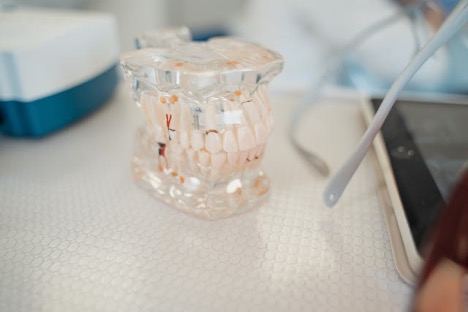 Innovation in dental crowns is not just a matter of aesthetic enhancement—it's a game-changer for oral health outcomes. As technology evolves, so does our ability to restore and enhance dental health through more sophisticated and tailored treatments. Recent advancements in dental crown technology are transforming what it means to receive a crown, making the procedures quicker, more accurate, and far less intrusive than ever before.
These innovations extend beyond mere improvements in materials or techniques; they redefine the patient experience and elevate the standard of care provided. By integrating cutting-edge materials with state-of-the-art fabrication processes, dental professionals can now offer solutions that look remarkably natural, function better, and last longer. This leap in dental technology not only enhances the efficiency of treatments but also significantly improves the overall oral health outcomes for patients across the globe.
(more…)
Innovation in dental crowns is not just a matter of aesthetic enhancement—it's a game-changer for oral health outcomes. As technology evolves, so does our ability to restore and enhance dental health through more sophisticated and tailored treatments. Recent advancements in dental crown technology are transforming what it means to receive a crown, making the procedures quicker, more accurate, and far less intrusive than ever before.
These innovations extend beyond mere improvements in materials or techniques; they redefine the patient experience and elevate the standard of care provided. By integrating cutting-edge materials with state-of-the-art fabrication processes, dental professionals can now offer solutions that look remarkably natural, function better, and last longer. This leap in dental technology not only enhances the efficiency of treatments but also significantly improves the overall oral health outcomes for patients across the globe.
(more…)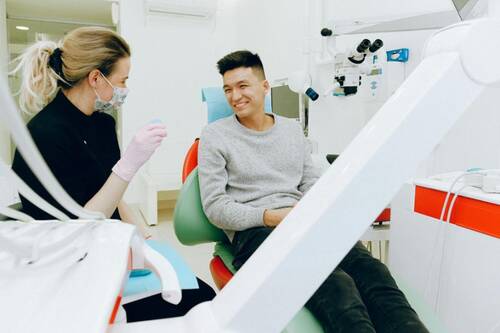 To tackle these issues, there’s help at your disposal. Think of a promising dental temp agency --the one-stop, efficient, and flexible hiring solution that can allow you to run your practice smartly and adapt to your staffing needs without any hassle.
This article covers the basics and benefits for choosing the best temp agency for your needs.
(more…)
To tackle these issues, there’s help at your disposal. Think of a promising dental temp agency --the one-stop, efficient, and flexible hiring solution that can allow you to run your practice smartly and adapt to your staffing needs without any hassle.
This article covers the basics and benefits for choosing the best temp agency for your needs.
(more…)- Introduction: The Power of a Radiant Smile
- Teeth Whitening: The Fast Track to Brighter Teeth
- Porcelain Veneers: Achieve a Flawless Finish
- Invisalign: Subtle Teeth Straightening for Adults
- Dental Bonding: Repairing Minor Imperfections with Ease
- Dental Implants: Restoring Function and Beauty
- Boosting Your Confidence with Cosmetic Dentistry
- Start Your Smile Transformation Today
5 Attributes Make a Dentist More Proficient & the Preferred Choice for Patients
For Invisalign users, maintaining oral hygiene is straightforward since the aligners can be removed. Regular brushing and flossing should be...
What Is Invisalign?
Invisalign is an orthodontic treatment that uses clear, removable aligners to straighten teeth. Unlike traditional braces, which use metal brackets and wires, Invisalign aligners are virtually invisible, making them a popular choice for adults and teens who want a more discreet treatment option. The aligners are custom-made to fit your teeth and gradually shift them into the desired position. (more…)Understanding Invisalign
Invisalign is a popular orthodontic treatment that uses a series of clear, removable aligners to gradually straighten teeth. Unlike traditional braces, which use metal brackets and wires, Invisalign aligners are virtually invisible and can be removed for eating, brushing, and flossing. This makes them a convenient option for many adults and teens who prefer a more discreet approach to orthodontics. (more…)1. Teeth Whitening – A Quick Brightness Boost
When it comes to brightening your smile, teeth whitening is hands-down one of the most popular treatments from a cosmetic dentist. Whether you're dealing with coffee stains, years of wear and tear, or just want to amp up the brightness, teeth whitening offers a simple solution. Professional teeth whitening is far more effective than over-the-counter treatments. It’s quick, relatively inexpensive, and can brighten your teeth by several shades in just one session. Many people love how easy it is to transform their smile with such minimal effort. While results are immediate, they can last a long time with proper care—just avoid too much coffee or red wine afterward! (more…)You may want to get that new tooth in place as fast as possible, but skipping crucial steps like waiting...
What to Know about Invisalign for Kids in South Surrey? How Is It Different from Adults?
Understanding Invisalign for Kids
Invisalign South Surrey for Kids is specifically designed to cater to the unique dental needs of growing children. The treatment focuses on aligning teeth and guiding the proper jaw and teeth development. This early intervention is crucial in preventing more severe orthodontic issues later in life. While the clear aligners work similarly to those for adults, the process and considerations are different. (more…)Oakland residents have always valued good health and a vibrant lifestyle, and in recent years, there’s been a noticeable shift towards prioritizing oral health and dental aesthetics. Teeth whitening, in particular, has become a go-to treatment for those seeking to enhance their smiles.
With the increasing availability of advanced dental services in Oakland, many people are turning to professional teeth whitening to achieve that coveted bright smile. This trend reflects a broader understanding of how white teeth contribute not just to oral health, but also to one’s overall appearance and attractiveness. In this article, we’ll explore the strong link between white teeth and physical attractiveness, beginning with the psychological impact of a bright smile.
(more…)Unlocking the Secret to a Better Smile
What Makes a Perfect Smile?
Components of a Beautiful Smile
White teeth alone don't make a beautiful smile! It has to do with color, alignment, and shape. Consider your grin as a piece of art, in which each component is important. Your teeth's symmetry, the condition of your gums, and even the way your lips surround your teeth all add to their lovely appearance.Personal and Social Benefits of Smiling
Smiling can improve social connections beyond aesthetics. It can improve your mood and make you seem more friendly. Have you ever noticed how your attitude changes when you glance in the mirror and see a smile on your face? It's not by accident! (more…)How to Maintain Strong Gums and Teeth
Regular dental check-ups, proper brushing and flossing, a balanced diet, and stress management are key practices that support a healthy...
Why Do Doctors Ask If You Have Crowns Before Surgery?
- Convenience and Streamlined Scheduling: One of the most significant advantages of family dentistry is convenience. Family dentists can handle all your family's dental needs under one roof, eliminating the need to schedule separate appointments with different dentists. This saves you time and ensures everyone in the family receives regular dental care.
- Familiarity and Comfort: Regular visits with the same dentist foster a sense of trust and familiarity. This is especially important for young children who may experience anxiety during dental visits. A familiar environment and a dentist they know can make a world of difference, transforming a potentially stressful experience into a positive one.
- Continuity of Care: A family dentist can track your family's dental history, allowing for personalized treatment plans and early detection of potential problems. This continuity of care is crucial for maintaining optimal oral health throughout your life. Your dentist can monitor the development of your children's teeth, identify any potential issues early on, and provide preventative measures to avoid future complications.
- Understanding Family Dental Needs: Family dentists are trained to address the unique dental needs of each family member. From the eruption of a child's first tooth and the development of their primary and permanent teeth to the concerns of adults and seniors, family dentists are equipped to handle all stages of oral health.
- Comprehensive Preventive Education: A family dentist not only provides routine care but also emphasizes preventive education tailored to your family’s specific needs. They can teach children the importance of brushing and flossing, provide dietary recommendations to support healthy teeth, and offer advice on preventing dental issues like cavities and gum disease. According to these dentists in San Antonio TX, by equipping your family with the knowledge to maintain good oral hygiene, they help ensure a lifetime of healthy smiles.

